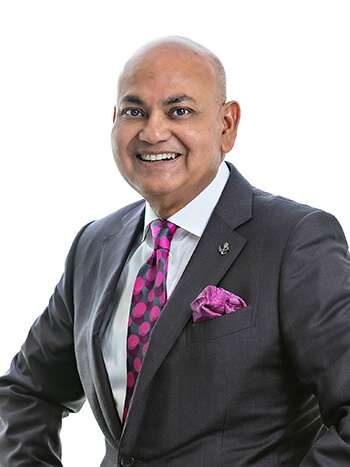RAFAAT RAHMANI recounts the life journey that took him from poverty to a top job — and a King’s Award for Enterprise
ALL START-ups face obstacles and setbacks in the early days. I vividly remember sitting at my kitchen table, staring at $7,900 — the entire budget for starting a company — and wondering how we were ever going to make this work.

Nearly 20 years on, as the CEO and founder of a global consultancy company, Lifescience Dynamics, I’m working with some of the world’s top companies. This year, as I arrived at the gates of Buckingham Palace to receive The King’s Award for Enterprise, I couldn’t help but reflect on my life’s voyage from a small village in Bihar, India.
My childhood was far from luxury, and further still from royalty. My grandmother used to send my cousins and me to school with dry-roasted corn or chickpeas in our pockets. Roasted in sand, that is, because she couldn’t afford cooking oil. We would watch our classmates eat their packed lunches as we chewed on dried grains.
Being dyslexic, schoolwork was a struggle for me. The teachers were quick to lash out with a ruler when I got something wrong. Very little was known about dyslexia at the time.
After school, I moved to the US at 17 to study business. That led to marketing roles for McDonalds and Pepsi. I then headed to the UK to complete an MBA before joining Eli Lilly & Co as part of their country general manager development programme. Later, I joined Double Helix, a consulting firm, as vice-president.
At the turn of the millennium, the internet boom opened up new possibilities — and inspired me to build my own company. My two initial ventures failed, and it was my third — a traditional consulting firm, not focused on technology — that took off.
Success has not come easy. When we first started out in the UK, our consulting services struggled to break into the pharmaceutical and biotech industries. Getting a meeting with potential clients at established companies was almost impossible. But entrepreneurs thrive on problem-solving. If we couldn’t make headway in our own backyard, then we would export our services to the US, Japan, and Europe. We built a division of subject-matter experts by hunting and hiring business analysts abroad.
Remaining flexible and adaptable was key, and I quickly learned that adversity can be turned into opportunity. Leadership is a continuous journey of growth, and the lessons from one’s upbringing can be powerful tools in a leader’s toolkit. Always keep your entrepreneurial spirit — and seize opportunities when they present themselves.




























